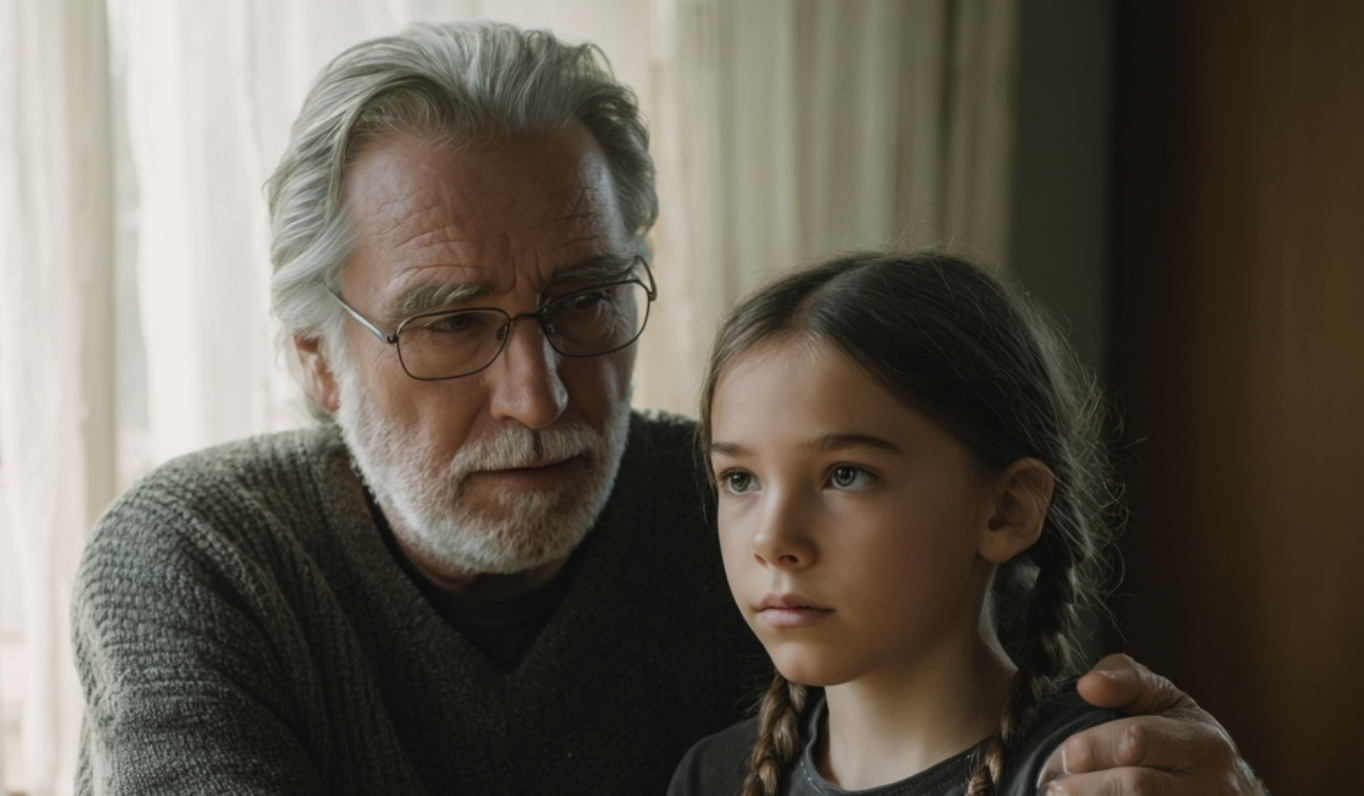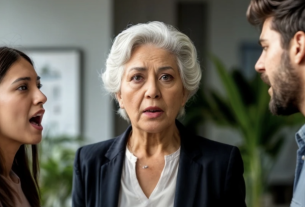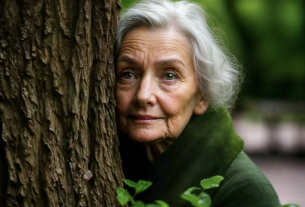In a residential neighborhood on the outskirts of Voronezh, life moved along in its usual quiet way. A microdistrict where everything was meant to remain as it always had: quiet, respectable, with no unnecessary noise. Here lived Daniil Landyshev—a widower, the owner of a small logistics company, a respected man who was always proud of his daughter.
Sonya, his twelve-year-old daughter, attended Secondary School No. 14. She used to be a cheerful, open girl with lively eyes. But lately something had changed. She would come home subdued, with a rumpled uniform and bruises on her arms and knees. Her look had become hunted, her voice quieter than usual.
“ I just fell, Dad,” she would say every time, trying to smile. “It’s nothing.”
But you can’t fool a father’s heart. He felt—it wasn’t true. Something was happening, something she couldn’t talk about. And he wasn’t alone in his worry.
“She cries in the bathroom,” the nanny, Margarita Ivanovna—who had helped raise Sonya since infancy—whispered one day. “She thinks I can’t hear. But she’s hurting. Hurting badly. She just endures it.”
From that day on, Daniil began meeting his daughter at the door. And every evening he noticed the same scene: as soon as Sonya crossed the threshold, her shoulders would drop, as if she could at last allow herself to relax. Her step grew slower, her posture less taut, her gaze thoughtful—even lost.
But every attempt to talk ended the same way:
“I’m fine, Dad.”
One evening he noticed the school backpack tossed by the entryway: a torn strap, a filthy bottom, notebooks bent out of shape with blurred pages. On the zipper were greenish smears, as if someone had crushed the bag into the grass.
“That’s not just wear and tear,” Margarita Ivanovna remarked, running a finger over the stains. “Something’s not right here…”
That night, exhausted by anxiety, Daniil took a step he had never imagined he would. He took an old mini-microphone from a desk drawer and carefully sewed it into the lining of the backpack. He didn’t want to eavesdrop. But he had no other way to learn the truth.
The next day he pressed “play.”
At first—the ordinary: laughter in the corridor, doors slamming, school chatter. Then—a dull thud. A stifled gasp. And then—a whisper full of fear:
“Don’t… don’t touch…”
Daniil froze. The blood drained from his face. His heart began to race. These weren’t accidental falls. This was real pain.
But what exactly was happening?
The second recording shattered his last illusions. What he had thought about Sonya had only been the surface. She was not a victim. She was not passive.
Sonya… was protecting others. Without screams, without complaints, without tears. Quietly, with dignity.
“Enough. Leave him alone. This is the second time already,” her voice sounded steady.
“He started it,” one of the boys replied.
“That’s no reason to attack. Back off.”
A rustle, scuffling, a breath. And a grateful whisper:
“Thank you…”
“Better me than you. Go to class,” Sonya said quietly.
Daniil couldn’t say a word. His breathing faltered. His quiet, thoughtful daughter… every day she stepped between those who suffered and those who inflicted pain—taking the blows herself to protect others.
And then he understood: this was no accident. It was the very essence of her nature. He remembered his late wife, Alina. Once she had told their little daughter:
“If someone is hurting, be the one who notices. Just be there.”
And Sonya remembered those words. Back in kindergarten she comforted a boy whose plush teddy bear had fallen into a stream. In second grade she stood up for a girl who stuttered. She always saw those whom others preferred not to notice.
Now Daniil could clearly see how strongly that trait had grown. Sonya had gathered around her a whole circle of children who followed her lead. One Friday evening he noticed her coming home not alone. Beside her were a boy named Yegor and two girls—Masha and Natasha. They stopped at a bench near the school, pulled out notebooks, and discussed something with serious faces.
Later he found his daughter’s journal:
“How to help Dima feel safe during recess”
“Who will walk beside Anya when she’s sad”
“Talk to Artyom so he stops being afraid to speak in front of the class.”
It wasn’t just kindness. It was a deliberate movement—a whole direction in life.
He went to the school principal, Irina Vladimirovna—a strict, neat woman, clearly worn out by endless parental complaints.
“There’s a problem at the school,” he began.
“Well, you understand, children are all different,” she interrupted. “We have no official reports of bullying.”
“My daughter has bruises because every day she stands up for those who are humiliated. That’s not an exaggeration. It’s the truth.”
“Perhaps she’s overly sensitive,” the woman shrugged.
Daniil left the office with eyes blazing—angry, but firmly resolved: he would no longer stand aside. He would act.
A couple of days later, there was a note in the mailbox, written in a child’s unsteady hand:
“Your daughter is the bravest person I know. When they locked me in the janitor’s closet, I thought no one would come. But she came. She opened the door. She said, ‘Let’s go home.’ Now I’m not afraid of the dark. Because I know—she exists.”
No signature. Only a drawn open hand.
That evening Daniil showed the letter to Sonya. She was silent for a long time. Her eyes shone. She held the paper so carefully, as if afraid to lose it.
“Sometimes it seems to me that it’s all in vain… that no one sees,” she whispered.
He came closer, his voice trembling with pride:
“It matters, Sonya. Far more than you can imagine. It always has.”
The next day Sonya was asked to speak at the school assembly. She agreed—but only if everyone who had stood by would come out with her.
“We’re not heroes,” she said. “We just stay close when it’s scary. If someone is crying—we stay with them. If they can’t speak—we speak for them. That’s all.”
The hall fell silent. And then it burst into applause. Teachers, students, parents—even the most indifferent—listened intently. That wall of silence began to crumble.
Anonymous notes with the word “Thank you” began to appear in the school corridors. Students signed up as volunteers—to be observers of kindness. Daniil gathered a group of parents whose children had changed as well. But they hadn’t understood what exactly had changed.
Now it became clear. No more silence.
In the evenings they met—sometimes at someone’s home, sometimes over video calls. They shared stories, fears, hopes.
Sonya did not seek attention. She needed no awards. Her gaze remained turned toward those who still couldn’t believe in the light.



